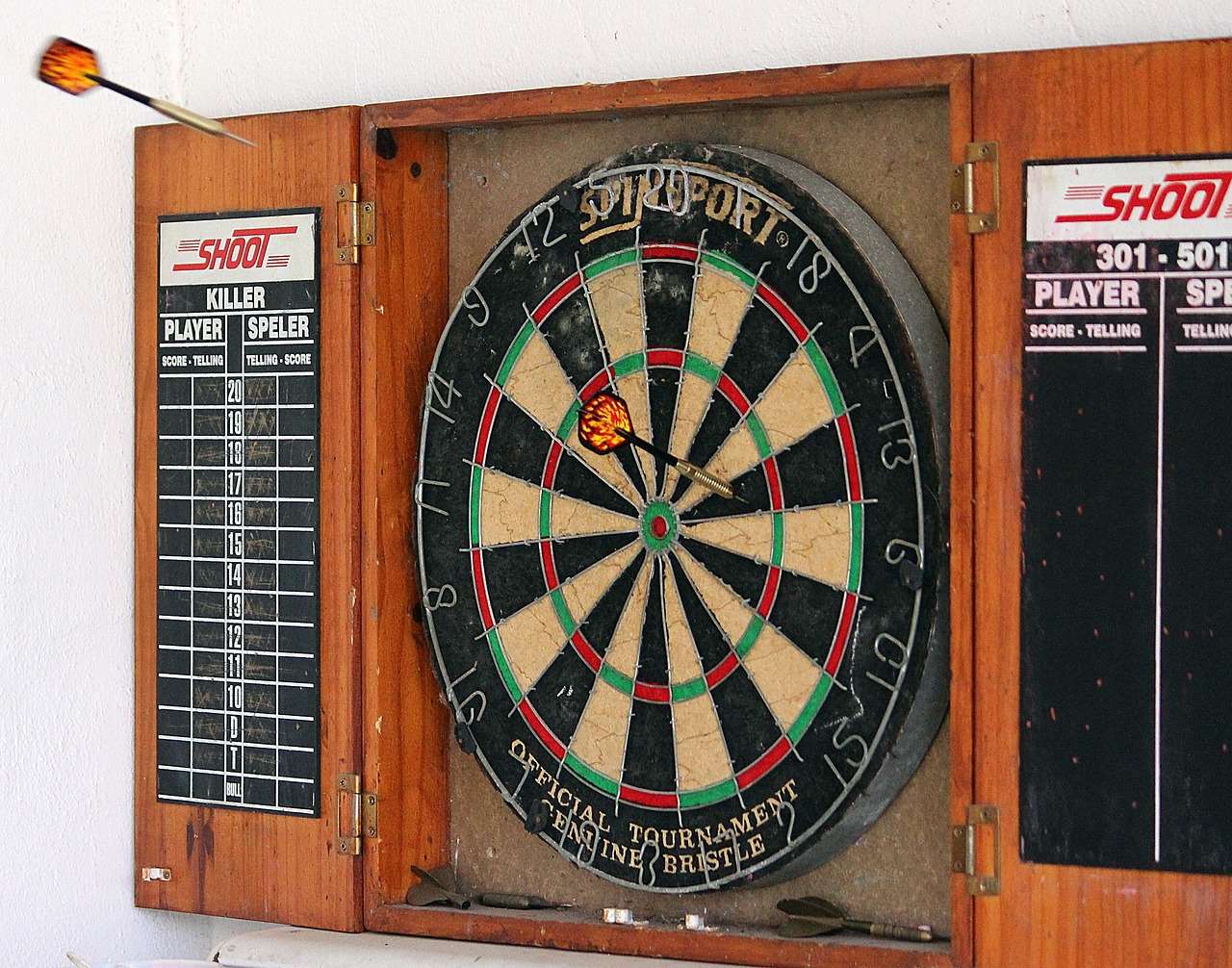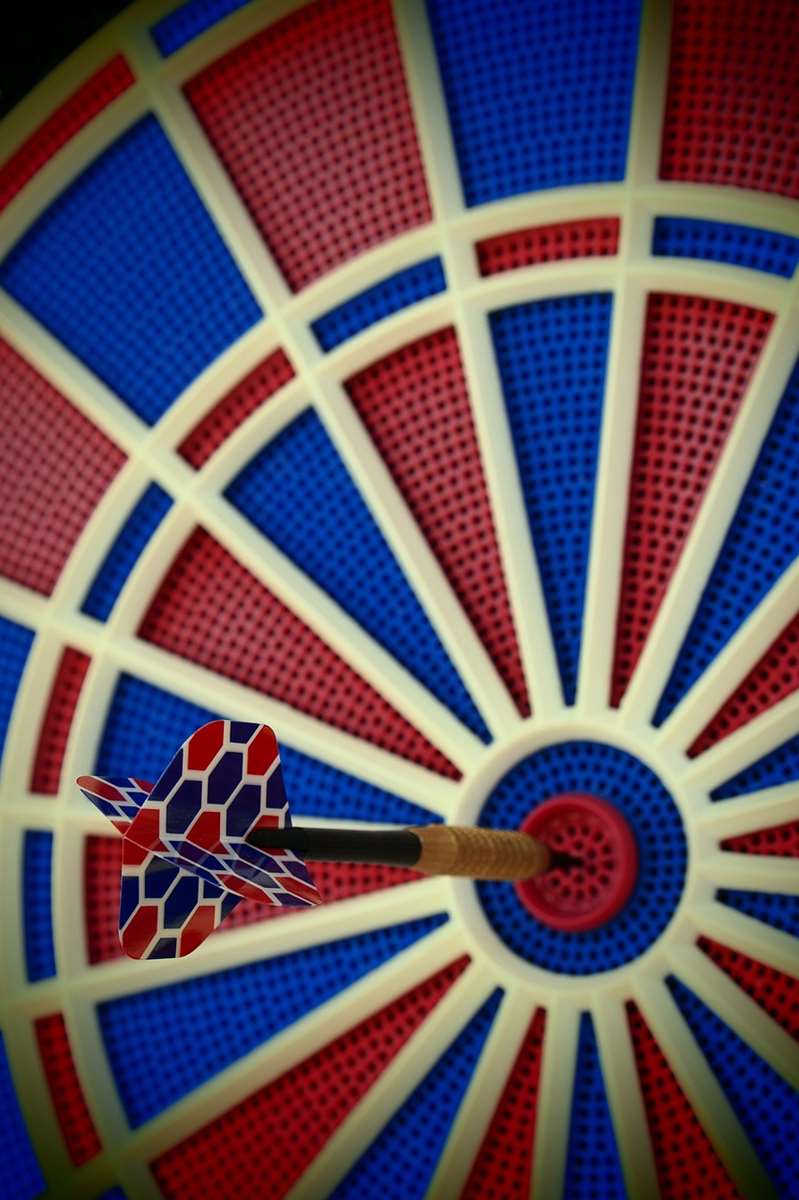Navigating the legal requirements for a darts club is essential to ensure smooth operation and avoid potential pitfalls. This article provides a comprehensive guide to understanding the crucial legal aspects of setting up and running a darts club, covering everything from licensing to insurance and data protection.
⚠️ Still Using Pen & Paper (or a Chalkboard)?! ⚠️
Step into the future! The Dart Counter App handles all the scoring, suggests checkouts, and tracks your stats automatically. It's easier than you think!
Try the Smart Dart Counter App FREE!Ready for an upgrade? Click above!
Understanding the Core Legal Requirements Darts Club
Establishing a thriving darts club involves more than just securing a venue and setting up dartboards. Adherence to various legal requirements is paramount for its sustainable operation. Neglecting these regulations can result in hefty fines, legal complications, and even the closure of the club. These requirements primarily revolve around ensuring safety, responsible alcohol service (if applicable), data protection, and adherence to local council regulations. This section will delve into the key areas you need to understand to stay compliant.

Business Structure and Registration
The first step is deciding on the legal structure of your darts club. Common options include:
- Sole Proprietorship: Simplest form, where the business is owned and run by one person. The owner is personally liable for all business debts.
- Partnership: Two or more individuals agree to share in the profits or losses of a business. Like sole proprietorships, partners have personal liability.
- Limited Liability Company (LLC): Offers some protection by separating the owner’s personal assets from the business’s debts.
- Non-profit Organization: If the club’s primary purpose is not profit-making, you may consider registering as a non-profit. This often requires a more complex setup but can unlock benefits such as grants and tax exemptions.
Once you’ve chosen your structure, you may need to register your business with the relevant authorities. Check with your local council or government agency for specific registration requirements. Remember to consult with a legal professional to determine the best structure for your darts club and its long-term goals.
Licensing and Permits for Your Darts Club
Depending on the activities and services offered by your darts club, various licenses and permits may be required. These are crucial for compliance and legitimacy. Ensure you have the necessary paperwork in place before opening your doors. This section covers common licenses needed for a darts club.
Alcohol Licensing (If Applicable)
If your darts club intends to serve alcohol, obtaining the appropriate alcohol license is non-negotiable. The specific type of license required will vary depending on the location and the type of alcohol you plan to serve. This might be a premises license, a personal license for staff serving alcohol, or both. Regulations often dictate hours of sale, staff training, and measures to prevent underage drinking. You can find detailed information on how to build a darts club on our website, which provides guidance on navigating these licensing complexities.
Entertainment Licenses
If you plan to have live music, televised sporting events, or other forms of entertainment at your darts club, you may need an entertainment license. Check with your local council to determine the specific requirements in your area. This license ensures that you comply with noise regulations and other rules related to public entertainment.

Food Hygiene Certificates
If you plan to serve food at your darts club, even simple snacks, you’ll need to comply with food hygiene regulations. This typically involves registering your premises with the local food safety authority and ensuring that staff handling food have received appropriate training and certification. Regular inspections may be conducted to ensure compliance with hygiene standards.
Insurance: Protecting Your Darts Club from Risks
Adequate insurance coverage is crucial for protecting your darts club from financial losses due to unforeseen events. Without sufficient insurance, a single incident could jeopardize the entire operation. Here are key types of insurance to consider:
Public Liability Insurance
This covers legal costs and compensation claims if a member of the public is injured or their property is damaged on your premises. This is arguably the most important type of insurance, as accidents can happen. Imagine a scenario where someone slips on a wet floor or is injured by a stray dart – public liability insurance would cover the associated costs.
Employers’ Liability Insurance
If you employ staff, even part-time, employers’ liability insurance is usually a legal requirement. This covers compensation claims from employees who are injured or become ill as a result of their work. Penalties for not having this insurance when required can be significant.
Contents Insurance
This protects your club’s assets, such as dartboards, furniture, equipment, and stock, against damage or theft. Consider the replacement cost of these items when determining the level of coverage needed. Also, think about the value of your dartboards when evaluating the right coverage. Protecting your assets is essential for maintaining a sustainable darts club.
Business Interruption Insurance
This covers lost income and expenses if your darts club is forced to close temporarily due to unforeseen circumstances, such as fire or flood. This type of insurance can help you stay afloat while you get back on your feet. Explore tips on Darts League Management Tips to manage risks.

Health and Safety Legal Requirements Darts Club
Prioritizing health and safety is crucial for creating a safe and enjoyable environment for members and visitors. Compliance with health and safety regulations is not only a legal obligation but also a moral one.
Risk Assessments
Conduct regular risk assessments to identify potential hazards and implement measures to mitigate them. This includes identifying risks associated with dart playing, such as eye injuries, and taking steps to prevent them, such as providing adequate lighting and ensuring that players stand behind the oche. Documenting these assessments is vital.
Fire Safety
Ensure that your darts club complies with fire safety regulations. This includes having functioning smoke detectors, fire extinguishers, and clearly marked escape routes. Conduct regular fire drills to ensure that everyone knows what to do in the event of a fire. Familiarize yourself with local fire codes to protect your community, promoting Darts Culture And Community Guide.
First Aid
Provide adequate first aid facilities and ensure that staff members are trained in basic first aid. Having a designated first aider on site can be invaluable in the event of an accident or medical emergency. Consider providing first aid training to some of your regular members to increase the availability of assistance.
Data Protection Compliance
In today’s digital age, data protection is a critical legal requirement for any organization that collects and processes personal data, including darts clubs. Compliance with data protection laws, such as the General Data Protection Regulation (GDPR), is essential to protect the privacy of your members and avoid hefty fines.
Privacy Policy
Develop a clear and comprehensive privacy policy that explains how you collect, use, and protect personal data. Make this policy easily accessible to your members, for example, on your website or notice board. Be transparent about the types of data you collect, the purposes for which you use it, and who you share it with.
Data Security
Implement appropriate technical and organizational measures to protect personal data from unauthorized access, use, or disclosure. This includes using strong passwords, encrypting sensitive data, and restricting access to personal data to authorized personnel only. Regular security audits can help identify and address vulnerabilities.
Consent
Obtain explicit consent from individuals before collecting and processing their personal data. This is particularly important for sensitive data, such as health information. Provide individuals with the option to withdraw their consent at any time. Make sure you understand setting up a darts club to navigate these complexities.

Employment Law Considerations
If your darts club employs staff, you need to comply with employment law regulations. This includes:
Minimum Wage
Ensure that you pay your employees at least the minimum wage required by law. The minimum wage varies depending on age and experience, so stay up-to-date with the latest rates.
Working Hours
Comply with regulations regarding working hours, including maximum working hours, rest breaks, and holiday entitlement. Keep accurate records of employees’ working hours to ensure compliance.
Discrimination
Avoid discrimination in employment practices. Treat all employees and job applicants fairly, regardless of their age, gender, race, religion, or disability. Have clear anti-discrimination policies in place.
Local Council Regulations
In addition to the above, your darts club will also be subject to regulations imposed by your local council. These may include:
Noise Regulations
Comply with noise regulations to avoid disturbing residents in the surrounding area. This may involve implementing soundproofing measures or restricting opening hours. Ensure that music and other forms of entertainment are kept at a reasonable level.
Planning Permission
Check whether you need planning permission for any alterations or extensions to your premises. Contact your local planning authority for advice.
Waste Disposal
Dispose of waste responsibly and in accordance with local regulations. This may involve using designated waste disposal services and recycling where possible. Strive for sustainable practices to minimize your environmental impact. You might find helpful tips while Recruiting Members Darts League Club with responsible messaging.

Ongoing Compliance and Updates
Compliance with legal requirements is not a one-time event; it’s an ongoing process. Laws and regulations change over time, so it’s important to stay informed and update your policies and procedures accordingly. Subscribe to industry publications, attend training courses, and seek professional advice when needed.
Regular Reviews
Conduct regular reviews of your policies and procedures to ensure that they are still up-to-date and compliant with the latest regulations. This includes reviewing your risk assessments, privacy policy, and employment contracts. Legal requirements are dynamic and require constant monitoring.
Seek Professional Advice
Don’t hesitate to seek professional advice from lawyers, accountants, and other experts. They can provide valuable guidance on navigating the complex world of legal requirements and ensure that your darts club is operating legally and ethically. Investing in professional advice can save you time, money, and stress in the long run. Consider tips on Promoting Local Darts while staying compliant.
Conclusion
Understanding and adhering to the legal requirements for a darts club is paramount for its long-term success. By covering areas like licensing, insurance, health and safety, and data protection, you create a secure and compliant environment for your members and staff. Remember that laws and regulations are dynamic, so stay informed and seek professional advice when necessary. Take proactive steps to ensure your darts club operates smoothly and avoids potential legal issues. Prioritizing these elements not only safeguards your organization but also fosters a positive and enjoyable atmosphere for everyone involved. Take action today to solidify the foundation of your darts club.
Hi, I’m Dieter, and I created Dartcounter (Dartcounterapp.com). My motivation wasn’t being a darts expert – quite the opposite! When I first started playing, I loved the game but found keeping accurate scores and tracking stats difficult and distracting.
I figured I couldn’t be the only one struggling with this. So, I decided to build a solution: an easy-to-use application that everyone, no matter their experience level, could use to manage scoring effortlessly.
My goal for Dartcounter was simple: let the app handle the numbers – the scoring, the averages, the stats, even checkout suggestions – so players could focus purely on their throw and enjoying the game. It began as a way to solve my own beginner’s problem, and I’m thrilled it has grown into a helpful tool for the wider darts community.